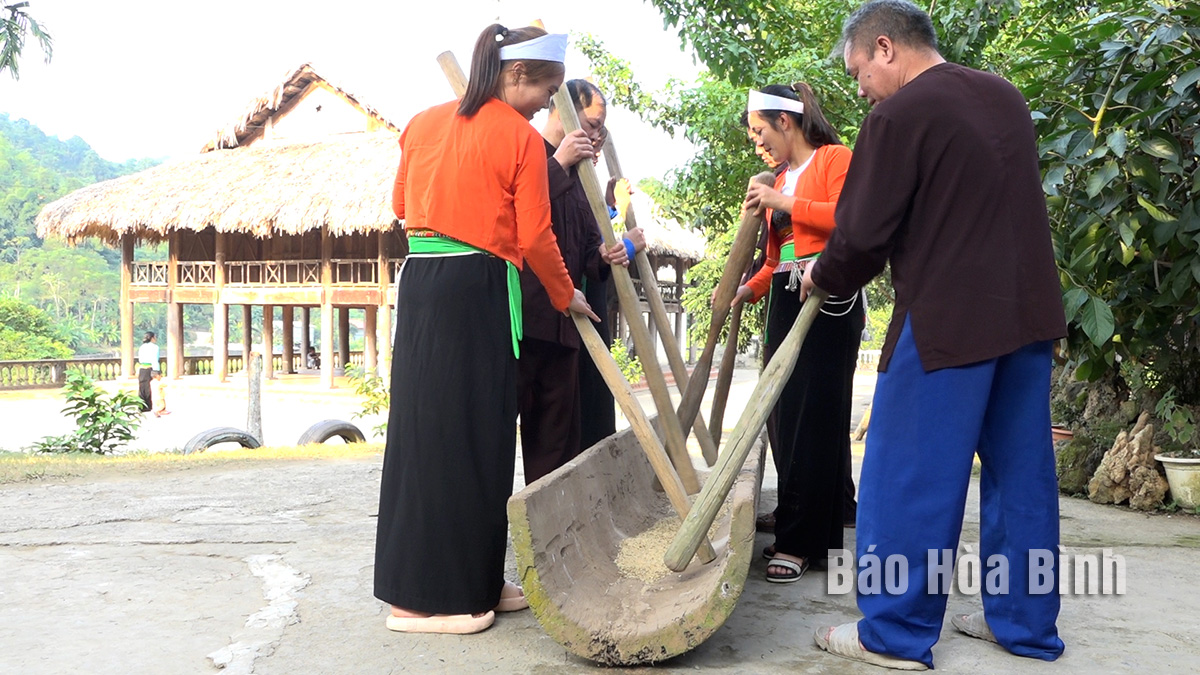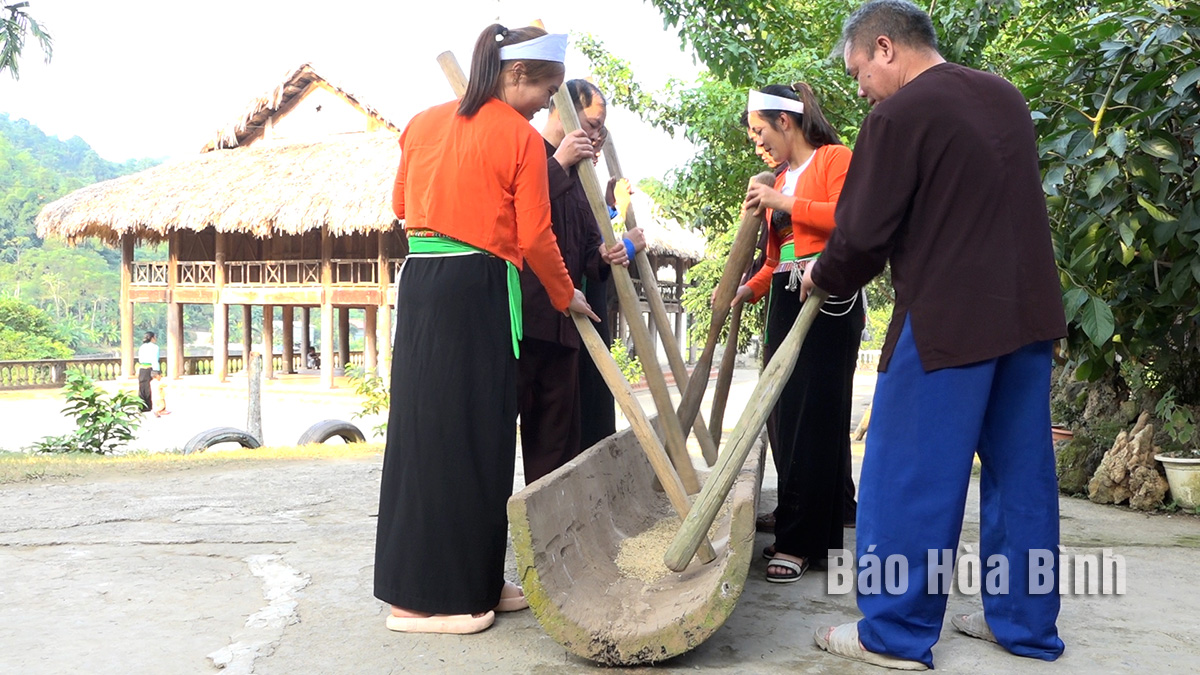
Boasting poetic and charming natural landscapes, simple stilt houses deeply imbued with the Muong ethnic cultural identity, distinctive customs and lifestyle, and rich cuisine, Mo hamlet in Binh Thanh commune of Cao Phong district holds favourable conditions to develop community-based tourism.
The "dam duong” (rice pounding) custom of Muong people
has been revived and reenacted by members of the community-based tourism
cooperative of Mo hamlet, Binh Thanh commune (Cao Phong district), to serve
visitors.
Dinh Van Lan, Vice Chairman of the Binh Thanh
communal People’s Committee, said that one of the important projects
substantially supporting the preservation and promotion of ethnic minority
groups’ traditional culture is the one on upholding and bringing into play the
minorities’ fine traditional cultural values in tandem with developing tourism.
This project, chaired by the Ministry of Culture, Sports and Tourism (MCST), is
part of the national target programme on socio-economic development in ethnic
minority and mountainous areas for the 2021 - 2025 period. To carry out the
project, the Hanoi Tourism College has implemented a Muong ethnic culture
experiencing and introducing model in Binh Thanh.
The initial success of this project is a good
start for Mo hamlet to regain its good reputation, he said, noting that his
commune hopes for the project’s continued assistance in preserving cultural
values of the Muong people so as to uphold cultural characteristics and develop
tourism, thereby contributing to local socio-economic development.
Mo hamlet is home to 195 households with 767
residents. Its community-based tourism cooperative was established in 2021 with
30 members. The cooperative now has two clubs working rather effectively,
namely the club for collecting and introducing Muong people’s traditional
culture and the one for teaching Muong folk songs and dances. Since its
inception, the cooperative has served 36,218 tourists, 93.1% of them Vietnames.
Dinh Van Dan, Director of the cooperative, said
they have been recovering tangible and intangible cultural heritage elements of
the Muong people such as looms, watering wheels, the practice of walking on
stilts, the game of "con” (cloth ball) throwing, "Mo Muong”, "Doi” calendar,
gong melodies, and folk songs, so as to design new programmes for visitors to
experience the rich Muong culture.
Besides, forming a cultural village in
association with tourism promotion is not a new method but will help preserve
and bring into play the cultural identities of ethnic groups, eliminate
backward customs and social vices from the community, and encourage the
adoption of a civilised and healthy lifestyle deeply imbued with local cultural
characteristics to attract tourists coming to explore.
Hoang Anh Hau, Director of the Centre for
Continuing Training at the Hanoi Tourism College, said in the time ahead, the
school will continue proposing the MCST open more tourism training courses for
local residents to help the quality of the community-based tourism site in Mo
hamlet be equivalent to or higher than others’ in Hoa Binh province.
Community-based tourism is a type of tourism
generating many benefits in terms of sustainable economic development for
locals. It helps people to not only protect the environment but also preserve
and bring into play unique cultural values of their localities, he added.
A diverse chain of eco-tourism and resort destinations concentrated in Hoa Binh city and the districts of Tan Lac, Da Bac, and Luong Son… Along with the launch of several key high-quality resort tourism projects, these developments have reshaped the landscape and enhanced the appeal of Hoa Binh as a travel destination.
Boasting diverse terrain, a mild climate, and rich natural resources, Cao Phong district is increasingly asserting its place on Vietnam’s tourism map, attracting both domestic and foreign visitors. The district is renowned for its stunning landscapes, majestic mountains, a crystal-clear hydropower lake, and the unique cultural identity of local ethnic groups.
With its pristine landscapes, unique cultural heritage of Muong ethnic minority, and an expanding range of visitor experiences, Tan Lac district of Hoa Binh has fast become a captivating destination for both domestic and international tourists.
Until now, Sung village in Cao Son commune, Da Bac district remains the only Dao ethnic community in Hoa Binh province to develop a community-based tourism model. Beyond its untouched natural landscapes, cultural identity serves as the cornerstone attraction for visitors.
Alongside the diverse cultural identities of the Kinh, Muong, Tay, Thai, Dao, and Mong ethnic people, Hoa Binh province is also renowned as the "capital" of the northwestern Vietnamese cuisine, offering unique and distinctive dishes. At festivals, during Lunar New Year (Tet), or on significant family or community occasions, special dishes are prepared, leaving a lasting impression on visitors.
A Phong Linh (Yellow Tabebuia) flower garden in Thang village, Thach Yen commune, Cao Phong district is currently in full bloom, drawing a large number of visitors.



